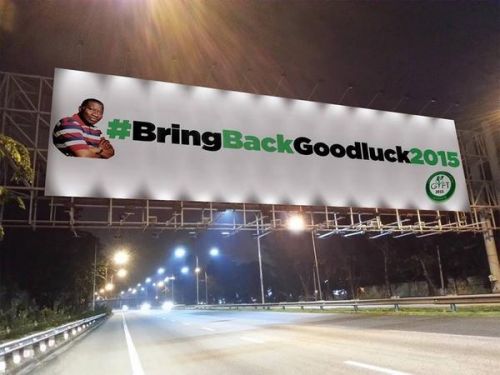Opinion
NewsWireNGR Examines Jonathan, 2015 And The Fictitious Leaders Of The North

By Tahir Sherrif
The Jonathanian era is one which will go down in Nigeria’s history books. It will be written in great words, describing lofty achievements from the most humble of beginnings. But perhaps, hidden within each page, may be an eerie silence about the unexpected rise of a powerful southern leader and his battle with northern compatriots.
If one were to do justice in the description on this era, it would be by describing it for what it is without prejudice. It will mean giving President Goodluck Jonathan humble credit to his political battles the with idealist and never relenting religious titan Muhammadu Buhari, who in over three decades since leaving power did not change his tactics, did not alter his convictions, and never failed to inspire his millions of followers, who somehow disappear during elections. It will mean giving detail to the rise, and fall, and return of north-eastern business tycoon and former Vice-President Atiku Abubakar and his rigorous political cross-carpeting in search for power after violating the first Machiavellian rule to never outshine the master. But more than these two, perhaps it should also talk of his ruthless encounter with a psychological maniac warped with a pseudo-religious mind-set as old as Babylon. The infamous militant leader, Abubakar Shekau.
I like to think that there is a stronger than obvious relationship in the lives of President Goodluck Jonathan and Abubakar Shekau. Like Jonathan the once shoe-less youth, Shekau also had a humble beginning. Whereas Jonathan battled with growing up in the creeks with hard working parents who had never been on the news, Shekau sought out his life making earnings as a mechanic in the desert regions of Adamawa. Their lives were both characterized by study; one spent years in the walls of an academic institution and eventually acquired a PhD; the other spent cold mornings reading from a slate under the relentless combined sting of harsh harmattan weather and tightly knit dorina.
They also both had great predecessors into power, for President Jonathan a scholar and teacher who had opposed conventional northern thinking and pulled the most renowned power stunt aimed at empowering southern youths. For Shekau, it was Mohammed Yusuf, a young erudite scholar who sought to employ Gandhi’s non-violent opposition against a handicap educational system and the tyranny faced by his people from their corrupt leader. Both teachers died in political power-play, and thus ushered in one of the most complicated political situations faced by the most populated black community in the world. History perhaps may forget these happenings, or in a move towards political correctness may choose to re-write these events with a sympathetic hand.
But before us now, like the peace before a storm, are the events before the 2015 elections. A period which is marked by an untamed greed from a wild political class, a period of violent rebound attempts from a disillusioned lower class who had constantly been only electrified by stomach infrastructure and an era of the taunting face of a rebellious northern militant leader with extreme combat, fund raising, and morale boosting skills, a man who has proved himself well above several Chief of Army Staffs, Abubakar Shekau.
One thing is certain, unlike other leaders of the north, Shekau isn’t likely to go and pick a running ticket for 2015. And unlike leaders before him, President Goodluck Jonathan isn’t looking at the possibility of a peaceful co-existence with violent opposition, not if he plans to remain in office with the country intact. Where Shekau is accused to be supported financially by hidden gun manufacturers and politicians as well as religious interest groups, this isn’t the same tonne said of President Jonathan. By affiliating himself with the global fight against terror, he, is backed by a world-wide desire for peace, a global statement that the world can longer continue on the path of insurgency, extremism, sectarianism, and terror, and in a word-twist, a statement by US President Barrack Obama while addressing the United Nations and preparing to move against the ISIL; a deadly force of religious radicals in Iraq,
‘We can no longer rely on a rule-book written for another century’
Nonetheless, between them both, between these men who have dreamt and done, between political power-plays and the matching of violence for violence, is a country of over a hundred million people, waiting in fear and uncertainty, lost in Limbo, waiting for 2015.






